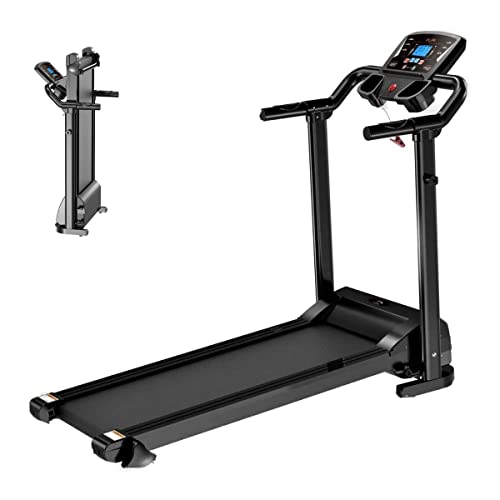This company has no active jobs
0 Review
Rate This Company ( No reviews yet )
About Us
What’s The Job Market For Tread Mill Professionals?
Treadmills: A Comprehensive Guide to Understanding Their Functionality, Benefits, and Appropriate Selection
Intro
Treadmills have become a staple in modern-day physical fitness routines, both in homes and gyms worldwide. They offer a practical and effective method to preserve cardiovascular health, increase endurance, and help in weight management. This short article checks out the different kinds of treadmills, their benefits, features to think about when acquiring, and some FAQs to assist users in making notified decisions.
Types of Treadmills
When it pertains to picking a treadmill, it is important to understand the various types offered in the market. Here are the main categories:
1. Manual Treadmills
- Mechanism: These treadmills have a basic design and depend on the user’s efforts to move the belt.
- Pros: More affordable, quieter operation, no electrical energy needed.
- Cons: Limited functions, might not offer the exact same series of workout strength.
2. Motorized Treadmills
- Mechanism: Powered by a motor that drives the belt, permitting users to stroll or run at a set pace.
- Pros: Greater range of speeds and slopes, equipped with many functions such as heart rate displays and workout programs.
- Cons: More expensive and may need more upkeep.
3. Folding Treadmills
- System: Designed for those with limited area, these treadmills can be folded for simple storage.
- Pros: Space-saving, often motorized, flexible functions.
- Cons: May be less durable than non-folding models.
4. Business Treadmills
- System: High-quality machines created for usage in gyms and gym.
- Pros: Built to endure heavy usage, advanced functions, often consist of warranties.
- Cons: Pricey and not perfect for home usage due to size.
5. Curved Treadmills
- System: A distinct style that enables users to move the belt utilizing their own energy.
- Pros: Offers a more natural running experience, Tread Mill promotes better running type.
- Cons: More expensive and can be noisier.
| Treadmill Type | Pros | Cons |
|---|---|---|
| Handbook | Inexpensive, no electrical energy required | Limited features |
| Motorized | Variety of speeds, advanced features | Upkeep needed |
| Folding | Space-saving, often motorized | May lack durability |
| Business | Developed to last, professional-grade features | Costly |
| Curved | Natural running experience, promotes great type | Higher rate |
Advantages of Using Treadmills
Treadmills provide numerous benefits that can add to one’s overall health and fitness objectives. A few of these benefits consist of:
- Convenient Workouts: Treadmills permit users to exercise indoors no matter climate condition.
- Cardiovascular Health: Regular use can improve heart health by increasing stamina and promoting healthy circulation.
- Weight Management: Effective for burning calories, which assists in weight reduction and management.
- Customizable Workouts: Users can control speed, slope, and duration to produce personalized exercise experiences.
- Security: Treadmills offer a predictable surface area, minimizing the risk of falls compared to outdoor running.
- Multifunctional: Many treadmills come with functions like heart rate monitors, workout programs, and even home entertainment systems.
Picking the Right Treadmill
When selecting a treadmill, prospective buyers must consider several crucial factors:
Features to Consider:
- Motor Power: Typically measured in horsepower (HP), a motor strength of at least 2.5 HP is recommended for severe runners.
- Belt Size: A longer and broader belt accommodates various stride lengths, supplying comfort during workouts.
- Slope Settings: Adjustable incline functions simulate outdoor hill running and can increase exercise intensity.
- Weight Capacity: Ensure the treadmill can support the user’s weight for security and durability.
- Console Features: Look for user-friendly control panels, exercise programs, and Bluetooth compatibility for streaming music or other functions.
Budget Considerations
- Under ₤ 500: Entry-level manual treadmills ideal for casual walkers.
- ₤ 500 – ₤ 1,500: Mid-range motorized treadmills that provide more features and much better resilience.
- ₤ 1,500 – ₤ 3,000: High-end models with innovative technology, larger motors, and longer service warranties.
- Over ₤ 3,000: Commercial-grade treadmills ideal for regular usage in fitness centers or training facilities.
Often Asked Questions (FAQs)
1. How often should I use a treadmill?
It is suggested to utilize a treadmill a minimum of three to 5 times a week, including different strength levels for best results.
2. Can I lose weight by utilizing a treadmill?
Yes, consistent use of a treadmill can contribute to weight reduction, especially when combined with a well balanced diet and strength training.
3. What is the best speed to stroll on a treadmill for newbies?
A speed of 3 to 4 miles per hour is a suitable range for novices. It’s vital to begin sluggish and gradually increase speed as convenience and stamina enhance.
4. Do I require to utilize a treadmill if I already run outdoors?
Utilizing a treadmill can provide fringe benefits, such as regulated environments and varied workouts (incline, intervals) that are not constantly possible outdoors.

5. How do I preserve my treadmill?
Regular maintenance consists of lubricating the belt, cleaning the deck and console, and examining the motor for optimal performance.
Treadmills are necessary tools for those wanting to improve their fitness levels in a regulated and hassle-free way. With numerous types offered, understanding their functions and advantages is vital for making an informed purchase. By considering individual exercise needs, space accessibility, and spending plan constraints, individuals can discover the most appropriate treadmill that fits their lifestyle. Incorporating treadmill exercises into a balanced fitness regimen can cause improved health results and a satisfying workout experience.

